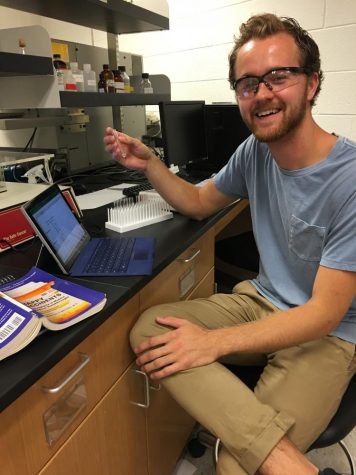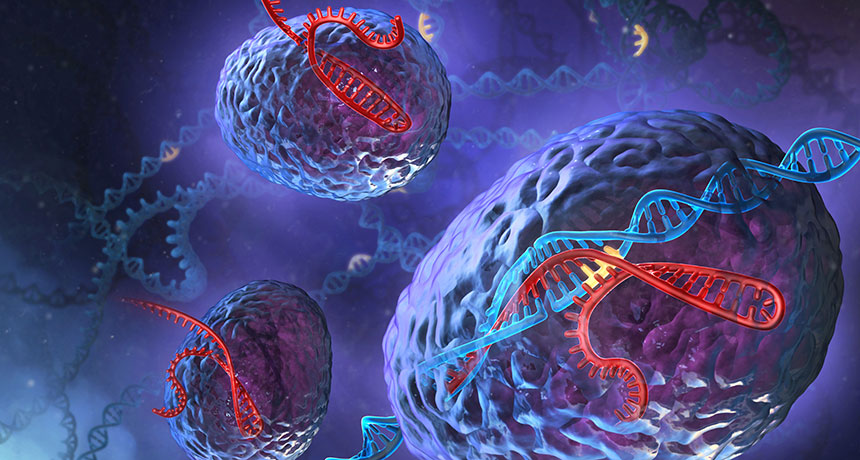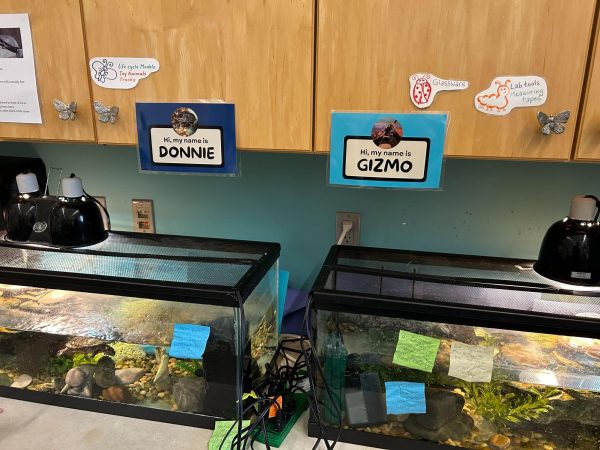Professor and students use gene editing tech
CRISPR technology acts through the Cas9 enzyme to remove and replace unwanted genes. The method was pioneered by researchers Jennifer Doudna and Emmanuel Charpentier. Photo Courtesy news.mit.edu.
Over this past summer, chemistry professor Brendan Looyenga used CRISPR, a recently popularized gene editing tool, in his study of renal cancer.
Patrick Jonker, a junior majoring in biochemistry and philosophy, worked with Looyenga and spent a much of his time using the technology.
“It essentially interacts with the DNA in the genome. It was found as a bacterial protection mechanism against viruses,” said Jonker.

Clustered Regularly Interspaced Short Palindromic Repeats (CRISPR), is a family of DNA sequences in bacteria that contains snippets of DNA from viruses that have attacked the bacteria. These snippets are stored in “memory” and used by the bacteria cells to detect and destroy DNA from further attacks by similar viruses. Essentially, CRISPR technology allows scientists to use this family of sequences to snip out certain genes and replace them with others.
Looyenga’s research focused specifically on mutated genes that cause kidney cancer. With CRISPR, they aimed to cut tumor-suppressing genes out and observe what happened to the cell afterward.
The dream for many researchers is to be able to fix bad DNA and genetically heal people from the inside, without invasive chemotherapy or radiation. However, as Looyenga noted, such treatments are not currently available.
“CRISPR is a really good biomedical technique in terms of research but it’s not a clinical method yet,” he said.
Looyenga also further explained that one of the challenges facing clinical CRISPR use is a concern over side effects including unintended alterations to other genes parts.
CRISPR technology has received wide popular media coverage due to what many critics consider ethically questionable procedures such as altering embryonic DNA.
Looyenga called CRISPR “an entirely phenomenal tool useful for gene mutation in the lab” but expressed some ethical concerns in regards to using this tool for in vitro fertilization.
Jonker mentioned some of these ethical issues, mentioning specifically the creation of so-called “designer babies” or other genetically optimized humans for military warfare.
Their research, which started last May, is ongoing and may continue until next summer.
Looyenga was also joined this summer by senior Drew Folkerts in a second project, also studying renal cancer using CRISPR techniques.












Peter Kapteyn • Oct 22, 2017 at 10:58 am
Hey looking good out there Patrick!